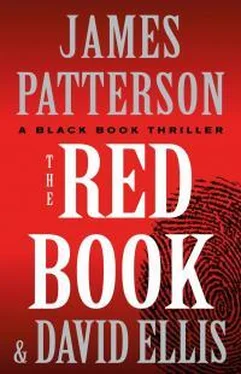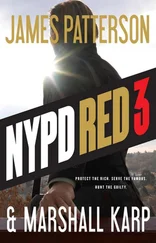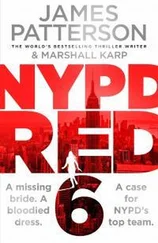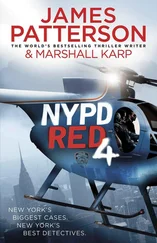Patti will take this the hardest. She and I were tight, as twins usually are, but for her Pop was on a pedestal. And she was on his pedestal, his only girl. The boys got an occasional smack when we stepped out of line, even the belt once in a blue moon, but Patti always got delicate strokes of the hair and gentle admonishments.
But Patti’s also had the longest time to adjust. She worked with the movers more than I did. She’s been checking on the house since Pop went away. Brendan and Aiden, on the other hand, they don’t even live in Chicago anymore, so being here is a big deal for them.
We don’t spend too much time looking through the boxes. Thanks to Patti, they’re well organized. Aiden, the biggest puppy dog of all, just peeks into the boxes to make sure they contain his stuff. He’ll “go through it later,” he tells us, which probably means the boxes will sit in some closet in his house, untouched, for the next decade.
“Look at fuckin’ this.” Out of a tall moving box, Brendan pulls a Santa Claus suit—the red velvet, the black-and-white trim, the long cotton beard.
“God, was I pissed at Pop,” I say. There’s a story there: Santa Claus always used to come visit on Christmas Eve, bearing a present for each of us kids, while we sat, mute and awed. It was a big deal every Christmas at our place, with the rest of the crew there, too—Uncle Mikey and his family from Bridgeport, Aunt Marcy and her brood from the North Side, Cubs fans but otherwise good eggs.
Anyway, I’m six, and we’re done with dinner, same as always when Mom did Christmas—roast goose with boiled potatoes, cabbage, and brussels sprouts—and we’re all talking about Santa coming. Four of us little kids mean it, we still believe, and the older ones just go along with it.
For some reason, I head into the garage, probably for a Pepsi, but I don’t really remember why. And there, standing next to the Chrysler, is Pop, one foot already in the Santa suit, an oh-shit expression on his face as we locked eyes.
Needless to say, I’m beside myself, running through the house, calling everyone liars, letting the few of us who didn’t already know (including Patti) in on the big secret.
“You didn’t talk to Uncle Mikey for, like, a year,” Aiden says.
That part I don’t remember. “Why Mikey in particular?” I ask.
“For wearing the Santa costume,” he says.
“God, he felt so bad,” says Brendan, chuckling, shaking his head. “Remember? Mikey tried to tell you that night that Santa asked him to fill in because of the snowstorm.”
I look around the room. Everyone’s enjoying the memory, but…“Pop was wearing the costume,” I say. “Not Mikey.”
“No, it was Mikey, dumbass,” says Brendan. “He had the better stomach for it. At least back then.”
I look at Patti. “It was Mikey,” she agrees.
I put my hands on my hips. “The fuck you guys talking about? I was the one who saw him. I was the trauma victim. I looked Pop straight in the eyes. I can picture him, totally, halfway into that Santa costume.”
“Yeah, okay,” says Brendan out of the side of his mouth. “Or maybe it was Angelina Jolie in that costume, and you banged her. I mean, as long as you’re making shit up, it might as well be worth it.”
“You guys are fucked in the head.” I head into the back room of the basement, the storage area.
“Yeah, all of us are wrong,” Aiden calls out, “and you’re right.”
It was Pop. I distinctly remember it. I mean, I can picture it like it was yesterday.
The back room—the storage area and utility room. The boiler, which must be fifty years old. Pop was so proud of that thing. He said that boiler would outlive us all.
Next to it, the hot-water heater, nearly as prehistoric, a big beige contraption with a little slot in the back that opens, the place where they put the thick set of instructions, out of sight but there if you need them. I know this detail only because I needed a place to hide my Playboy magazine when I was a teenager, and my bedroom held no secrets from Mom.
What are the odds that it’s still there? I have no idea if I ever removed it. The feds, with their search warrant, went through the house with a fine-tooth comb after Pop’s arrest, tore the place apart. Maybe, in addition to finding troves of incriminating evidence against my father, one of the agents came away with a centerfold of Lexie Karlsen.
What the hell. I step around some boxes and reach around the water heater. Using muscle memory, I push up on the latch. The door falls open, and I reach in.
No magazine. Some other kind of printed material. A hard cover. A book.
I move closer, so my hand can grip it better, and slide it up and out.
Yeah, a book. A small inch-thick book with a red cover. A ledger of some kind.
A flutter passes through my chest.
I leaf through it quickly, confirm it’s what I think it is—some kind of record Pop was keeping of payoffs. It’s his handwriting. Not prose but words, numbers, codes, written in pencil. I stop on one page, glance at the initial entries.
S3925P—Rio Fly—250
S2607R—V Disc—300
W3827K—Bobby Jay—250
I close it up. I don’t want to read it. That chapter, if you’ll pardon the pun, is closed. The feds missed this ledger, this little red book of secrets, but then again, they had enough to put him away for a life sentence anyway.
So what’s the difference? I consider putting it right back where I found it.
Instead I head back into the main part of the basement, where the siblings aren’t done with me, still throwing out guesses about who donned that Santa costume in the garage thirty years ago. Wilford Brimley? Caitlyn Jenner? Pee-wee Herman?
Nobody notices as I slip the small red book into one of my boxes.
Chapter 37
PAVLO DEMCHUK was a thug, but he was a thug with a sense of honor and dignity. When I put the cuffs on him almost eight years ago, he wasn’t exactly giddy with joy, but he didn’t complain, didn’t whimper, didn’t beg or plead. There was a sense of resignation about him, as if he knew this day would come but hoped it wouldn’t come so soon.
After he pleaded guilty to one count of running an illegal gambling establishment over in Portage Park—but before he was sentenced—I went to visit him in the lockup. I had a real hard-on back then, hoping to make detective, and I wanted the mobsters above him on the food chain. I thought Pavlo could give me that, because Pavlo knew everybody; his uncle had been one of the top Russian mobsters in Chicago, and though Pavlo never reached those heights or even tried to, he had his finger in plenty of things, and I suspected that very little happened that he didn’t know about.
Pavlo was a perfect gentleman, complimenting me on my police work, readily admitting to his own involvement, but he smiled politely when I asked him about anyone else. “I understand your curiosity, but I will not speak of others,” he kept saying in that thick Russian accent. I went through my routine: I could talk to the prosecutors; we could reduce the hell out of your sentence; why would you protect people who didn’t even bond you out when you were arrested—the full charm offensive.
Over the three trips I made to the lockup, always with some version of that same pitch, Pavlo’s expression never changed. He just nodded, let me say my piece, and politely declined to say anything further. I came to respect the guy, even admire him—at least how he handled adversity.
He got five years with his priors. He’s out now, but still on MSR, so I knew the address on his sheet must be current. I called ahead to make sure he was home.
Pavlo lives in a bungalow in Norridge, a decidedly middle-class neighborhood full of A-frames and Georgians on small plots, not far from Harlem Irving Plaza. Pavlo is standing at the door when I pull up. It’s been years, and I don’t know what I expected, but he’s aged more than I would’ve thought. I remember the bald top, but the sides were bushy and dark; now they’re snow-white and cut tight. His stomach used to hang over his belt; now he’s svelte, unnaturally so, which makes me think of illness.
Читать дальше












